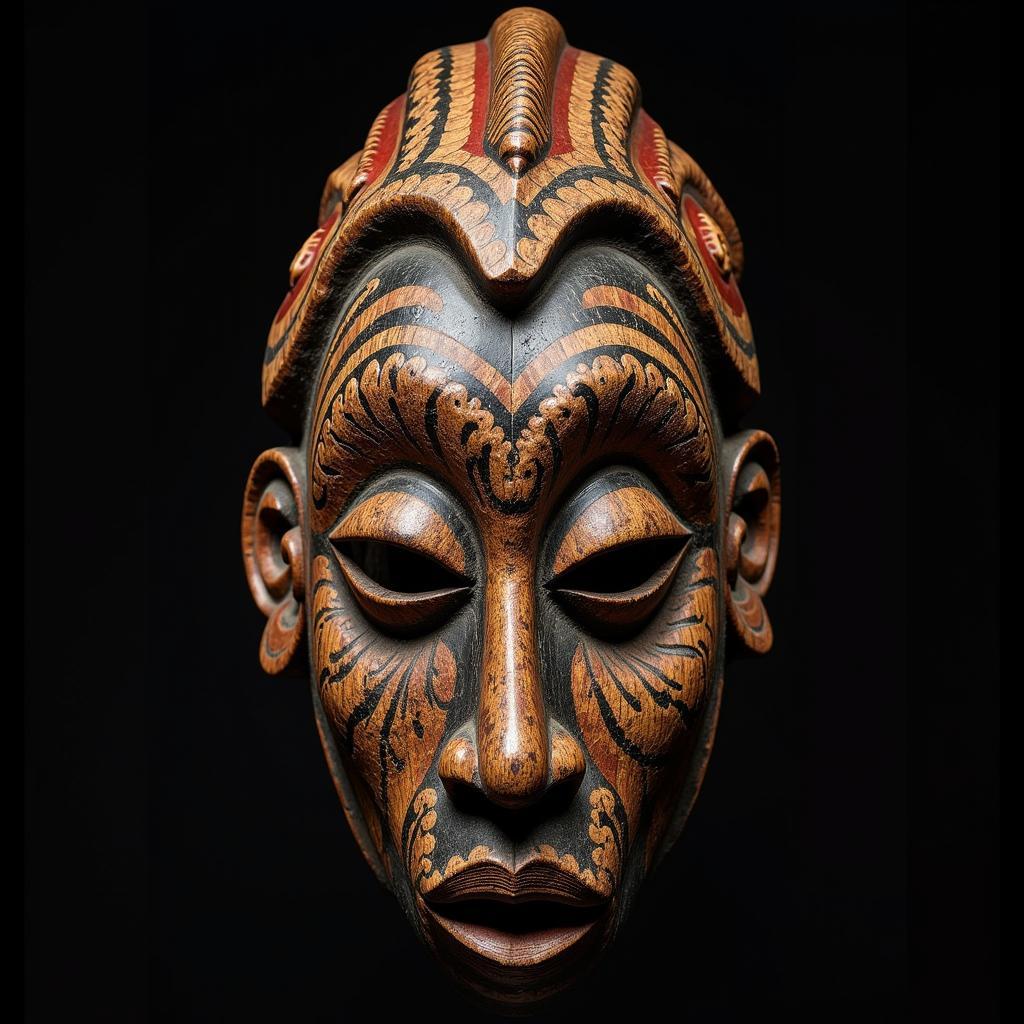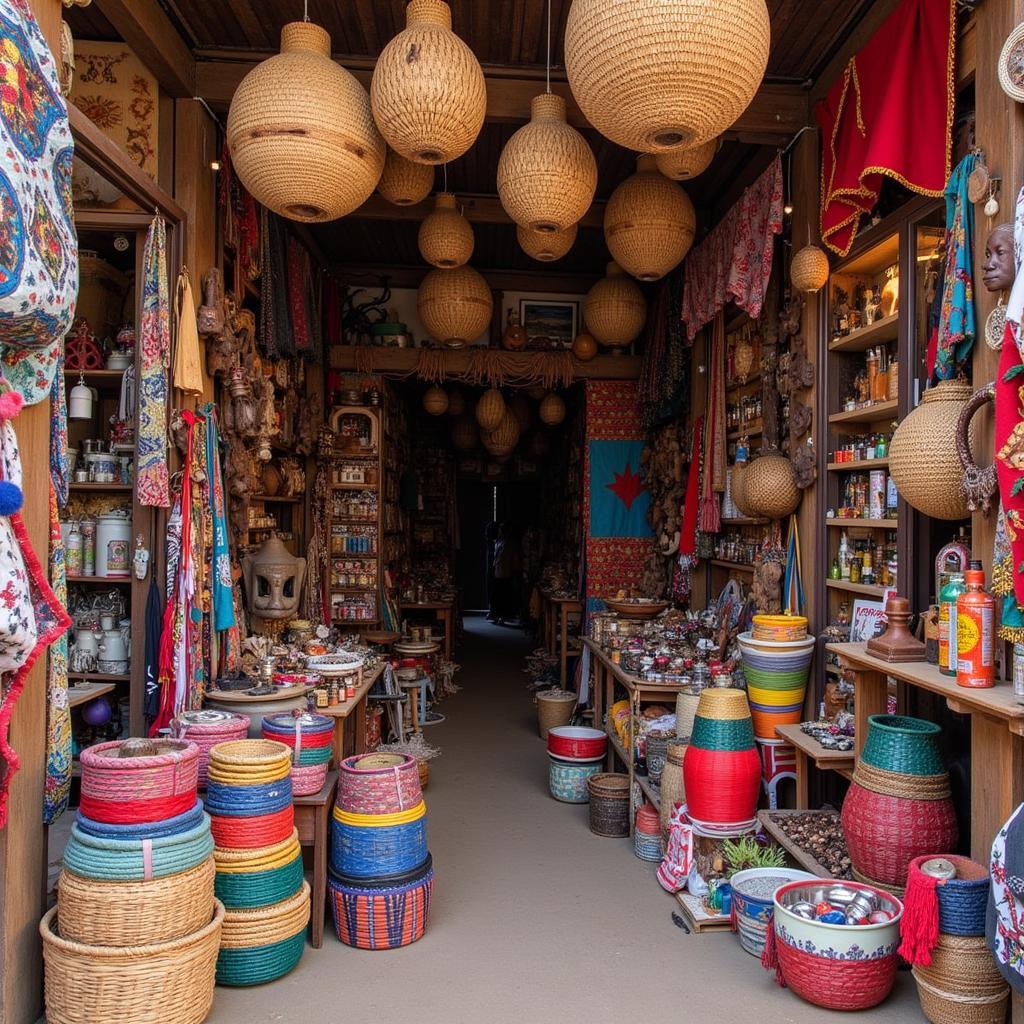The African Country Colonized by Freed Slaves: A Deep Dive into Liberia
Liberia, an African Country Colonized By Freed Slaves, stands as a unique nation on the African continent. Its history is deeply intertwined with the American Colonization Society and the resettlement of formerly enslaved African Americans in the early 19th century. This complex history has shaped Liberia’s cultural landscape, political system, and social dynamics, making it a fascinating case study in the aftermath of slavery and the challenges of nation-building.
Liberia: A Haven Built on Hope and Hardship
The idea of repatriating freed slaves to Africa gained traction in the United States in the early 1800s. Driven by various motives, including abolitionist sentiments, racial prejudice, and the desire to remove free Black people from American society, the American Colonization Society was formed in 1816. They purchased land along the West African coast, which would eventually become Liberia. The first group of settlers arrived in 1822, facing immense challenges in establishing a new society in an unfamiliar environment.
The early years of the settlement were marked by high mortality rates due to disease and conflicts with the indigenous populations. However, the settlers persevered, establishing the city of Monrovia, named after U.S. President James Monroe, and gradually expanding their territory. They developed a political system modeled after the United States, declaring independence in 1847. The new nation, Liberia, became the first republic in Africa.
The Complexities of Colonization by Freed Slaves
The colonization of Liberia was a double-edged sword. While it offered freed slaves a chance at self-governance and freedom from racial discrimination, it also created a new form of colonialism. The settlers, known as Americo-Liberians, established a dominant position in the new society, often marginalizing the indigenous African communities. This dynamic led to social and political tensions that continue to shape Liberian society today. For more information about African countries that weren’t colonized in the traditional sense, see african countries not colonized.
The Impact of the Past on Modern Liberia
The legacy of colonization by freed slaves is deeply ingrained in Liberia’s national identity. Americo-Liberian culture, with its blend of African and American influences, continues to play a significant role in the country’s social fabric. The political system, while evolving, still bears the marks of its American origins. Understanding this historical context is crucial for comprehending the complexities of modern Liberia.
What were the challenges faced by the freed slaves who colonized Liberia?
The freed slaves who colonized Liberia faced numerous challenges, including disease, unfamiliar terrain, and conflict with indigenous populations. They also had to build a new nation from scratch, establishing infrastructure, government, and a functioning society.
How did the colonization of Liberia impact the indigenous population?
The colonization of Liberia by freed slaves led to the marginalization of the indigenous population. The Americo-Liberians held political and economic power, often displacing and exploiting indigenous communities. This created social and political tensions that persist to this day. If you’re interested in learning about other colonial powers in Africa, you can read about african colonies of portugal.
Dr. Kendi Taylor, a prominent historian specializing in African diaspora studies, notes, “The Liberian story is a complex one, highlighting both the resilience of the human spirit and the enduring impact of historical injustices.” The unique narrative of an african country colonized by freed slaves offers valuable insights into the complexities of colonization, identity, and the ongoing struggle for equality. For further reading on this topic, see african country colonised by freed slaves.
Conclusion: Liberia’s Enduring Story
Liberia, an african country colonized by freed slaves, remains a testament to the enduring human spirit and the complex legacy of slavery. Its history serves as a reminder of the challenges of building a nation, the importance of understanding historical context, and the ongoing pursuit of equality and justice. For more context about this unique situation, you can explore the topic further through this link: african country colonised by free slaves.
FAQ
- Who founded Liberia? The American Colonization Society.
- When did Liberia gain independence? 1847.
- What is the capital of Liberia? Monrovia.
- What are the main languages spoken in Liberia? English and indigenous African languages.
- What is the significance of Liberia’s history? It represents a unique case of an African nation founded by freed slaves.
- What are some of the current challenges facing Liberia? Poverty, political instability, and the legacy of historical injustices.
- How does Liberia’s history impact its present? Its past influences its culture, politics, and social dynamics.
Need more information? Explore other articles on our website about African history and culture.
For support, contact us at +255768904061, [email protected], or visit us at Mbarali DC Mawindi, Kangaga, Tanzania. We offer 24/7 customer service.

